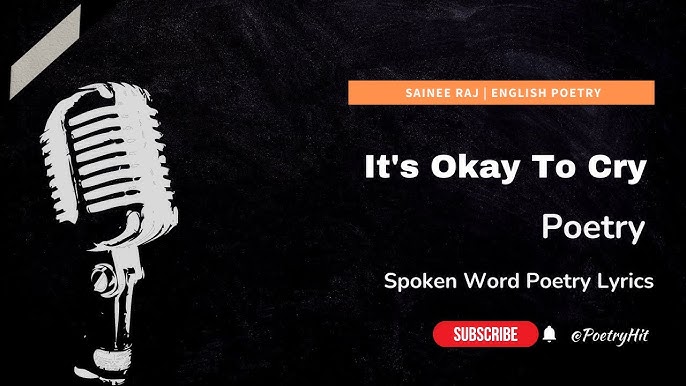
Poetry, often seen as a deeply personal and artistic endeavor, might not immediately come to mind as a viable freelance career. However, in today’s gig economy, where creativity and unique skills are in high demand, poetry has carved out a niche as a legitimate and rewarding freelance profession. From crafting bespoke poems for special occasions to contributing to publications, teaching workshops, or collaborating with brands, poets can transform their passion for words into a sustainable income stream. This article explores the multifaceted world of poetry as a freelance skill, offering insights into its potential, strategies for success, and practical steps to build a thriving career.
The Rise of Freelance Poetry
The freelance economy has expanded dramatically over the past decade, with platforms like Upwork, Fiverr, and Patreon enabling creatives to monetize their talents. Poetry, with its ability to evoke emotion, tell stories, and capture moments, has found a unique place in this ecosystem. Clients seek poets for a variety of purposes, including personalized gifts, marketing campaigns, social media content, and even therapeutic writing services. The rise of social media platforms like Instagram and TikTok has also fueled the popularity of short-form poetry, creating opportunities for poets to reach wide audiences and attract paying clients.
Moreover, the accessibility of digital tools has democratized poetry. Poets no longer need traditional publishing deals to gain visibility; they can self-publish, build a following, and offer their services directly to clients. This shift has made freelance poetry not only feasible but also appealing to those who value creative freedom and flexibility.
Why Choose Poetry as a Freelance Skill?
1. Low Barrier to Entry
Unlike many freelance professions that require expensive equipment or formal qualifications, poetry primarily demands creativity, a strong command of language, and a willingness to market oneself. While formal education in literature or creative writing can be beneficial, it’s not a prerequisite. Many successful freelance poets are self-taught, honing their craft through practice, reading, and community engagement.
2. Emotional Impact and Niche Appeal
Poetry’s ability to convey deep emotions in concise, powerful ways makes it a sought-after skill for personal and commercial projects. Whether it’s a heartfelt poem for a wedding, a poignant piece for a memorial, or a catchy verse for a brand’s advertising campaign, poetry offers a unique value proposition that few other skills can match.
3. Flexibility and Versatility
Freelance poetry allows for immense flexibility. Poets can work from anywhere, set their own schedules, and choose projects that align with their interests. The versatility of poetry also means it can be applied across industries, from publishing and entertainment to education and marketing.
4. Personal Fulfillment
For those passionate about writing, poetry offers a deeply fulfilling creative outlet. Turning this passion into a freelance career allows poets to do what they love while earning an income, blending personal satisfaction with professional success.
Key Areas for Freelance Poetry Work
Freelance poets can explore a variety of avenues to monetize their skills. Below are some of the most prominent opportunities:
1. Custom Poetry for Individuals
One of the most popular freelance poetry services is writing custom poems for clients. These poems are often commissioned for special occasions such as weddings, anniversaries, birthdays, graduations, or memorials. Clients provide details about the recipient, the occasion, and the tone they want, and the poet crafts a unique piece tailored to their needs.
- How to Get Started: Platforms like Etsy, Fiverr, and Upwork are excellent places to offer custom poetry services. Create a compelling profile that showcases your style, and include sample poems to attract clients. Pricing typically ranges from $20 to $100 per poem, depending on length, complexity, and turnaround time.
- Tips for Success: Communicate clearly with clients to understand their expectations. Offer revisions to ensure satisfaction, and consider adding extras like calligraphy or digital formatting for an additional fee.
2. Poetry for Brands and Businesses

Businesses increasingly turn to poets to create engaging content for marketing campaigns, social media, and product launches. Poetry’s concise and emotive nature makes it ideal for capturing attention in a crowded digital space.
- Examples: Writing taglines, jingles, or short poems for advertisements, crafting Instagram captions, or creating narrative-driven content for brand storytelling.
- How to Get Started: Reach out to small businesses, startups, or marketing agencies through LinkedIn or direct pitches. Highlight how poetry can enhance their brand’s voice. For example, a poet might write a series of haikus for a sustainable fashion brand’s social media campaign, emphasizing eco-friendly values.
- Pricing: Rates vary widely, from $50 for a short social media poem to $500 or more for a comprehensive campaign.
3. Publishing and Submissions
Traditional publishing remains a viable path for freelance poets. Literary magazines, anthologies, and online journals often pay for high-quality poetry submissions. While the pay per poem may be modest (typically $10–$200), consistent submissions can add up over time.
- How to Get Started: Research publications that align with your style using resources like Submittable or Duotrope. Follow submission guidelines meticulously, and keep track of deadlines. Self-publishing on platforms like Amazon Kindle Direct Publishing or Gumroad is another option for selling poetry collections.
- Tips for Success: Build a portfolio of published work to establish credibility. Network with editors and other poets to stay informed about opportunities.
4. Poetry Workshops and Teaching
Experienced poets can monetize their expertise by offering workshops, classes, or one-on-one coaching. These can be conducted in person or online, covering topics like poetic forms, creative writing techniques, or performance poetry.
- How to Get Started: Platforms like Skillshare, Udemy, or Outschool allow poets to create and sell courses. Alternatively, advertise local workshops through community centers, libraries, or social media. Rates can range from $20 per student for a group workshop to $100 per hour for private coaching.
- Tips for Success: Develop a clear curriculum and promote your unique teaching style. Engage students with interactive exercises and provide constructive feedback.
5. Performance and Spoken Word
Spoken word poetry has surged in popularity, with poets performing at events, open mics, and festivals. Freelance poets can earn money through paid gigs, ticketed shows, or crowdfunding platforms like Patreon.
- How to Get Started: Attend local open mic nights to gain experience and network with event organizers. Create a YouTube channel or TikTok account to share performances and attract bookings. Rates for performances vary, from $50 for small events to $1,000 or more for high-profile gigs.
- Tips for Success: Hone your stage presence and practice delivering poems with confidence. Record professional-quality videos to showcase your work to potential clients.
6. Collaborative Projects
Poets can collaborate with artists, musicians, or filmmakers to create interdisciplinary works. For example, a poet might write lyrics for a song, contribute to a multimedia art installation, or provide voiceovers for a short film.
- How to Get Started: Network with creatives through platforms like Behance or local art communities. Pitch your poetry as a complementary element to their projects. Rates depend on the scope of the collaboration but can range from $100 to several thousand dollars for large projects.
- Tips for Success: Be open to experimentation and adapt your style to fit the project’s vision. Clear contracts outlining deliverables and payment are essential.
Building a Freelance Poetry Career
Turning poetry into a sustainable freelance career requires strategy, persistence, and a proactive approach. Below are key steps to establish yourself as a freelance poet:
1. Develop Your Craft
While natural talent is a great starting point, continuous improvement is crucial. Read widely across genres, study poetic forms (e.g., sonnets, haikus, free verse), and practice writing daily. Join poetry communities, both online and offline, to receive feedback and stay inspired. Resources like Poetry Foundation, Poets.org, and local writing groups can be invaluable.
2. Create a Portfolio
A strong portfolio showcases your versatility and style. Include a variety of poems—personal, commissioned, and published works—to demonstrate your range. Host your portfolio on a personal website or platforms like Wix, Squarespace, or WordPress. Include testimonials from clients or editors to build credibility.
3. Establish an Online Presence
In the digital age, a robust online presence is essential for attracting clients. Use social media platforms like Instagram, Twitter, or TikTok to share your work and engage with followers. Create a professional website with a clear call-to-action for hiring your services. Consistent posting and interaction can help you build a loyal audience.
4. Market Your Services
Effective marketing sets successful freelance poets apart. Here are some strategies:
- Freelance Platforms: Set up profiles on Fiverr, Upwork, or Etsy, offering clear descriptions of your services and competitive pricing.
- Networking: Attend literary events, open mics, and creative conferences to connect with potential clients and collaborators.
- Cold Pitching: Reach out to businesses, magazines, or event organizers with tailored pitches showcasing how your poetry can meet their needs.
- Content Marketing: Share blog posts, videos, or newsletters about your creative process to attract clients and establish authority.
5. Set Fair Pricing
Pricing your poetry services can be challenging, as it depends on factors like experience, project scope, and market demand. Research competitors on freelance platforms to gauge industry standards. Consider offering tiered pricing (e.g., basic, premium, and deluxe packages) to accommodate different budgets. As you gain experience and recognition, gradually increase your rates.
6. Manage Finances and Contracts
Freelancing requires financial discipline. Track your income and expenses using tools like QuickBooks or Wave. Set aside money for taxes, as freelancers are responsible for their own tax filings. Use contracts for all projects, clearly outlining deliverables, deadlines, and payment terms to avoid disputes.
7. Diversify Income Streams
Relying on a single type of poetry work can be risky. Diversify your income by combining custom poetry, publishing, teaching, and performances. Explore passive income opportunities, such as selling digital poetry collections or creating merchandise featuring your work.
Challenges and How to Overcome Them
1. Inconsistent Income
Freelance poetry, like many creative professions, can involve unpredictable income. To mitigate this, build a client base through consistent marketing and maintain a financial buffer for lean months. Diversifying your services also helps stabilize income.
2. Rejection and Criticism
Poetry is subjective, and rejection is common when submitting to publications or pitching to clients. Treat rejection as a learning opportunity, and seek constructive feedback to improve. Joining supportive writing communities can also help you stay motivated.
3. Time Management
Balancing creative work with administrative tasks (e.g., marketing, invoicing) can be overwhelming. Use productivity tools like Trello, Asana, or Google Calendar to organize your schedule. Set aside dedicated time for writing to maintain your creative output.
4. Standing Out in a Competitive Market
With many poets offering freelance services, differentiation is key. Develop a unique voice or specialize in a niche, such as eco-poetry, love poems, or spoken word. Highlight what makes your work distinctive in your marketing materials.
Success Stories and Inspiration
Many poets have successfully turned their craft into thriving freelance careers. For example:
- Rupi Kaur: While best known for her bestselling collections, Kaur initially gained traction by sharing her poetry on Instagram, leading to book deals and speaking engagements.
- Atticus: This anonymous poet built a massive following on social media, monetizing their work through books, merchandise, and live performances.
- Local Poets: Many lesser-known poets thrive by offering custom poetry services on platforms like Etsy or teaching workshops in their communities.
These examples demonstrate that with creativity, persistence, and strategic marketing, poetry can be a viable freelance career.
Tools and Resources for Freelance Poets
- Writing Tools: Grammarly, ProWritingAid, or Scrivener for editing and organizing your work.
- Portfolio Platforms: Wix, Squarespace, or WordPress for creating a professional website.
- Freelance Platforms: Fiverr, Upwork, Etsy, or Patreon for finding clients and monetizing your work.
- Submission Resources: Submittable, Duotrope, or Poets & Writers for finding publication opportunities.
- Community Platforms: Poetry Foundation, Poets.org, or local writing groups for networking and feedback.
- Marketing Tools: Canva for creating promotional graphics, Mailchimp for newsletters, and Hootsuite for scheduling social media posts.
The Future of Freelance Poetry
As the demand for authentic, emotive content grows, freelance poetry is poised for further expansion. The rise of AI-generated content has sparked debates about creativity, but human-crafted poetry remains unmatched in its ability to convey genuine emotion and cultural nuance. Poets who embrace digital tools while staying true to their unique voices will likely find increasing opportunities in the coming years.
Additionally, emerging trends like virtual reality poetry experiences, NFT poetry collections, and AI-assisted poetry prompts could open new doors for freelancers. Staying adaptable and open to innovation will be key to long-term success.
Conclusion
Poetry as a freelance skill offers a unique blend of creative fulfillment and professional opportunity. By leveraging digital platforms, honing their craft, and strategically marketing their services, poets can build sustainable careers that resonate with clients and audiences alike. Whether writing custom poems, collaborating with brands, or teaching the next generation of poets, the possibilities are vast. With dedication and ingenuity, freelance poetry can be more than a passion—it can be a thriving profession that leaves a lasting impact.



